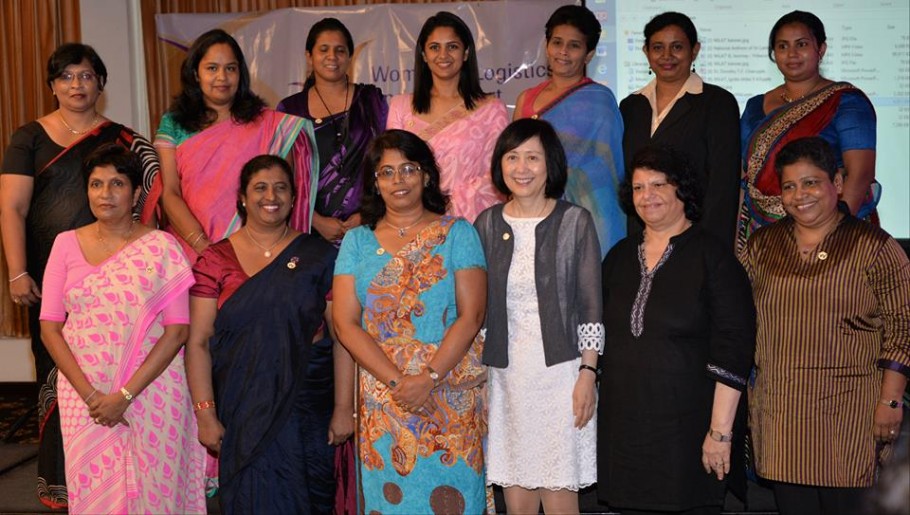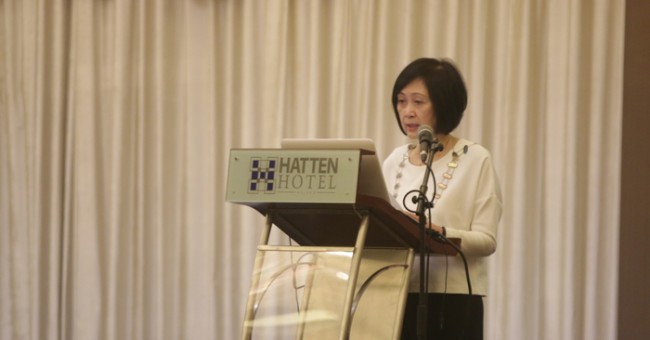Sri Lanka’s Women in Logistics & Transport (WiLAT) group launched its IGNITE Mentoring Programme for women in logistics and transport sectors in 2014. This article is based on the presentation “Effective Mentoring Relationships”, by Ramani Samarasundera, the Marketing Director of Unilever Sri Lanka, made at a WiLAT gathering in December 2014.

What is mentoring?
Mentoring supports and encourages people to manage their own learning, maximising their potential, developing their skills and improving their performance to become the person they want to be.
A mentor helps the student believe in themselves and boosts their confidence. For the individual, it is about becoming more self-aware, taking responsibility for their life and actively deciding on the direction rather than leaving it to chance. In a larger context, mentoring is a powerful personal development and empowerment tool.
What does it involve?
In terms of outcomes, mentoring is about igniting personalities, inspiring possibilities and investing in potential. It is also about instructing a purpose, instilling pride and infusing passion in the mentee about their potential, achievements and the future. It’s about idealizing what is yet to come — the prize.
Each one of us needs someone to help us see beyond what we can see today. That is the valuable role that an experienced mentor can play in our lives.
What does a mentor get from the relationship?
Mentoring allows time to reflect on what you’ve learned over the years from past experiences. Some people tend to jump in and solve others’ problems. Mentoring and consciously allowing the student to find their own solutions is a great way to learn how to help while not smothering or taking over. The experience of mentoring can help move the tutor to a higher plane on their own journey to leadership.
Being a good mentor
Remember all those who invested in you when you needed it? In terms of a legacy from your career, “you are only as good as the leaders you build.”
Regular meetings, keeping a diary and giving feedback that monitor and measure the student’s journey is a part of what is expected from a good mentor. You can motivate and strengthen the pupil and feel good by celebrating wins in terms of both behaviour and performance. If you truly love the process, it will work better for you both.
What a mentor should not do
As a mentor you should seek to build, not break the mentor’s goal, but that does not mean aiming to create another “me”.
You are not the student’s fairy godmother. Rather than solving their problems, the mentor should help the person solve their own problems; this process of discovery will make the mentee more confident.
Here’s how it works
Ramani used the examples from the movie Invictus to elaborate on the various aspects of a successful mentoring relationship. The movie, starring Morgan Freeman and Matt Damon, was based on the story of how Nelson Mandela, in his first term as the South African President, enlisted the national rugby team, which had been sidelined due to apartheid to win the 1995 Rugby World Cup.
The idea was that sports can act as a uniting force for a divided nation. The 1995 World Cup was the first major sporting event to take place in South Africa after apartheid ended. To get his support for the venture, Mandela invites the Springboks captain, Francois Pienaar, to tea. And the story ends with the Springboks winning the World Cup, against rugby powerhouse New Zealand.
Using this story, Ramani explained how the principles can be summarised into tips for both mentors and mentees.
Igniting personalities: Mentors need to find the first followers in their teams, the leaders. Having tea once a month and sharing your life helps. Mentees need to keep an open mind.
Inspiring possibilities: “I think he wants us to win the World Cup” says Pienaar in the movie. Mentors, like Mandela, need to have ‘bigger than life’ visions. Don’t treat reality as a benchmark; you need to look for the next mountain top and allow for self-realisation. Students need a “yes I can” spirit and be ready to do what it takes and to believe in it.
Investing in potential: Mentors need to work on building their technical and leadership skills; supporting the stretch, being there for the pupil and encouraging every milestone.
The pupil must work hard and identify gaps for skill and leadership development.
Inculcating purpose: Mentors shouldn’t lose touch of the bigger picture. They must guide students not just on the end, but also the means of getting there.
Pupils need to understand their own context, what their role is as a cog in the machine. They must appreciate the value of their contribution and know that “if it’s to be it’s up to me”.
Instilling pride: Mentors have to put their neck on the line, however outrageous that may seem. They must build followership for the journey and students must retain a winning spirit, but yet remain humble.
To infuse passion: Mentors need to keep their foot on the accelerator. You must be an antidote to failure and keep pushing. We cannot overestimate the value of believing in someone. Mentors have to remain focused as well. It is important to have others that support you. They help you and make it possible for you to reach your goal.
Idealizing the prize: Victories must be celebrated with the same enthusiasm, no matter how big the win. Make sure to give credit publicly when it’s due and quickly show them the next mountain they must conquer. It seems all the more possible and easier following victory. Pupils need to acknowledge their role and resolve to achieve greater heights. Do not be complacent.
Guiding principles for students
Not everyone finds a mentor. So if you’ve found one, you’ve been given a head start. People are not as different from each other as we tend to believe.
For maximum benefit you should actively seek feedback and take it constructively when given. Pick one or two behaviours to work on so that you can improve yourself in those areas. Talk to your mentor and agree on key performance indicators that will help you track your improvement.
A mentor can open your eyes to learn from past experiences and role models. They will provide inspiration and motivation for the journey ahead.
Your mentor offers you the opportunity to be heard and a sounding board for your ideas.
Mentoring is not something you ‘get’. It’s not what they can do for you that matters, but what you can get out of them. You, after all, are in charge of your own future. For both mentors and students this process is a two-way street, and therefore, you get out of it what you put in.

